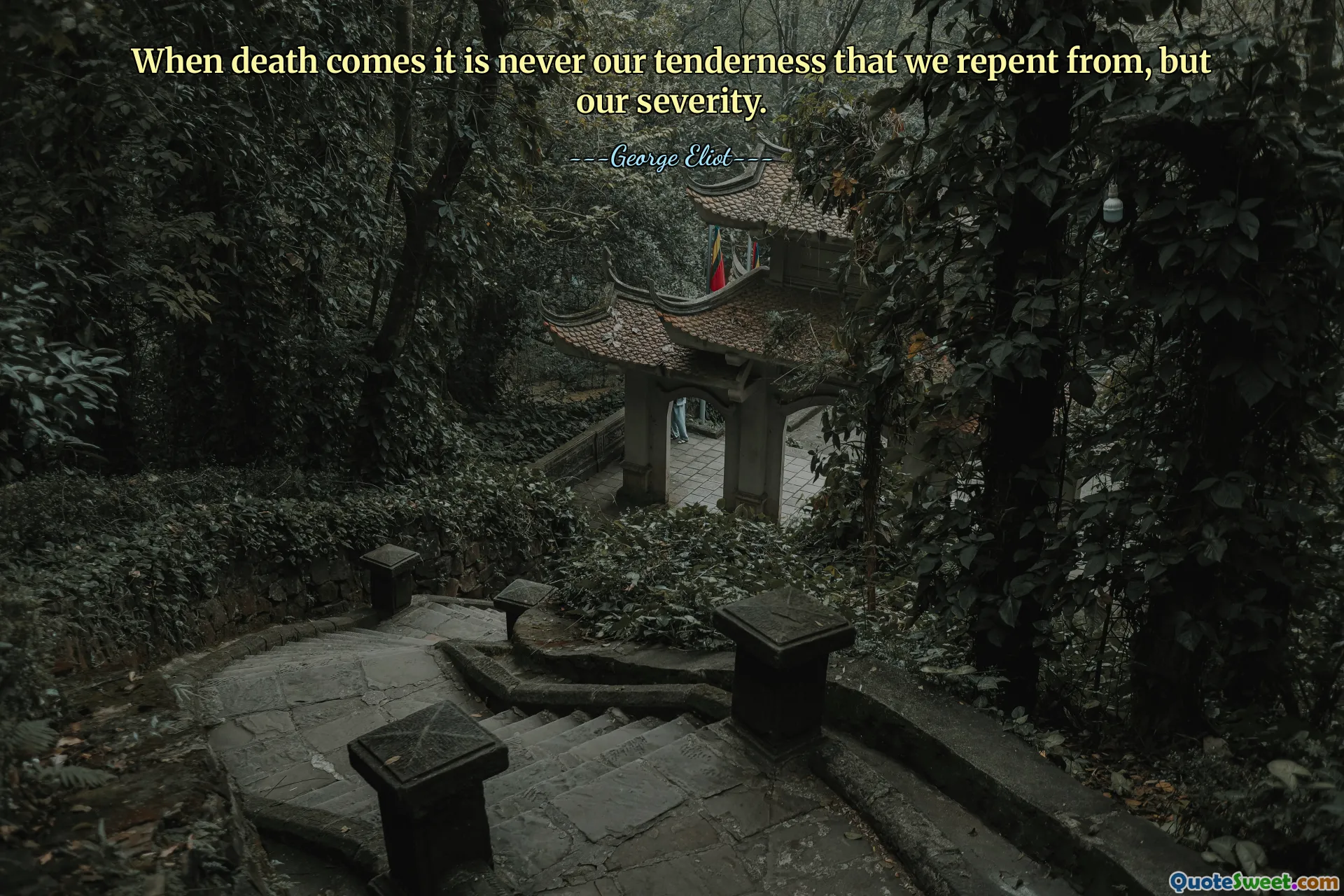
When death comes it is never our tenderness that we repent from, but our severity.
This profound observation invites reflection on the nature of our relationships and the qualities we value most when facing the end of life. Often, in the course of our lives, we harbor judgments, criticisms, or strictness toward others, perhaps driven by our desire for order, justice, or personal standards. These acts of severity—whether expressed through harsh words, strict discipline, or withholding compassion—tend to leave an indelible mark on our conscience, especially when death prompts a reevaluation of what truly matters. It suggests that in the final moments, what people regret are not their acts of kindness, patience, and tenderness, but rather moments of harshness and coldness that could have been replaced with understanding and love. Such insights encourage us to nurture qualities like compassion, patience, and gentleness throughout life because they become the true treasures in our legacy and memories. Learning to approach others with kindness not only improves their lives but also ensures that in our own moments of reflection, we are free from the burden of regret for having been unnecessarily severe. It underscores a universal truth—that our softer virtues, such as mercy and empathy, stand as our most redeeming qualities. Cultivating these virtues daily enriches our existence, making the inevitable encounter with death a source of peace rather than regret. Ultimately, this quote prompts deep introspection about how we choose to live and the values we prioritize, reminding us that tenderness in our actions forms the true measure of a life well-lived.









